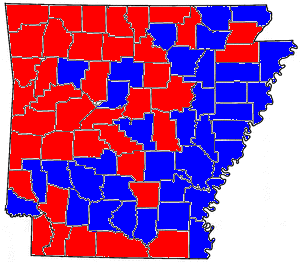Our political system is deadlocked. A scenario created precisely to be so bad as to engender dealmaking from political leadership has failed to push the two parties even close to a deal. With the once-nightmare scenario playing out before our very eyes, it’s difficult not to give up on our contemporary political decision making system entirely. Do hyper-partisanship or congressional procedure make it simply impossible to get anything done?
The answer is no. We have a method for sorting out deadlock and coming to a decision even when our political leaders are hopelessly divided. The parties are supposed to disagree, so we build in a method for making decisions. It’s actually pretty central to our identity as Americans.
That method is called an election. We just had one. Democrats won. By a lot.
In fact, Democrats won pretty much everything. Their presidential candidate was reelected. Most of their candidates for the Senate were chosen. And, most relevantly, they got more votes for the House of Representatives. About 500,000 more votes, actually. But you wouldn’t know it from the results. If our process resulted in a meaningful reflection of the will of the people who showed up on election day, Democrats would have both a clear mandate and the actual ability to deal with the country’s fiscal problems as they liked. But it does not.
Instead, our political system has been hijacked by gerrymandering. Both parties have played the game, but this time Republicans have managed to steal control of the House with it. As Dylan Matthews has reported on in much detail, their clever use of redistricting has resulted in a Republican majority in the House in spite of the number of votes they received. The result is a system artificially deadlocked not by the voters but by the gerrymanderers.
The more optimistic among us might still hope that compromise could come through and common sense prevail. That’s fine, but the point is that we shouldn’t have to wait for everyone to agree before we make big national decisions. Gerrymandering may, or may not, according to a range of conflicting evidence make members of Congress more or less partisan. Parties may become somewhat more amenable to dealmaking but, more importantly, would not have to. Room for much smaller disagreement in the party would undoubtedly sustain cable media’s need for discord, but reaching a deal would be infinitely less difficult.
So as we hurtle into sequester, remember that process, not policy disagreements, got us here. Policy disagreements are not new. They happen all the time. So we have a national debate and all get together on election day to pick which side we found more persuasive. That’s how democracy works. It’s not messy or nice, but it works. It’s a political system paralyzed by obfuscation of voter’s intentions getting in the way.
Photo Credit: Wikimedia Commons
